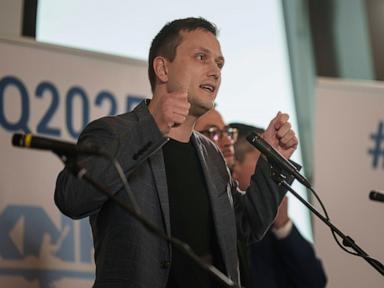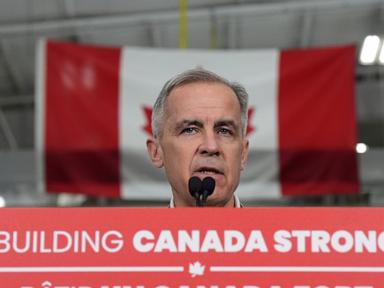Former United Kingdom Ambassador to the United States Kim Darroch urged British Prime Minister Keir Starmer to take a robust stance against President Trump’s threats of retaliatory tariffs, saying the U.K. should avoid giving Trump “wins.”
Darroch — who famously called Trump “inept” and “dysfunctional” as ambassador during Trump’s first term — warned that conceding to Trump will signal weakness and might invite additional threats of tariffs down the line.
“It’s understandable that, faced with deeply damaging U.S. tariffs on British cars, steel and aluminium, the government should think about concessions like reducing digital tax,” Darroch said in an interview with The Observer, according to a Guardian report published Saturday.
“But they need to be wary of giving Trump wins,” Darroch added. “Tariffs are his all-purpose forcing mechanism, and he’ll use them again and again if he sees them working.”
Darroch encouraged Starmer to model his approach after that of Canadian Prime Minister Mark Carney, who has pledged to retaliate with tariffs of his own. His tough response to Trump in Canada has rallied support for his party and appears to have had a softening effect on Trump.
“They should note the dramatic turnaround in Canadian politics, where on the back of a robust and defiant response to U.S. tariff threats, Mark Carney’s Liberals have gone from 14 points behind the Canadian Conservative Party at the end of January to 8 points ahead last week,” Darroch said.
The White House is expected to announce reciprocal tariffs on April 2 for a range of nations after months of unexpected new international trade policies. Ahead of what Trump has called “liberation day” on Wednesday, foreign leaders have been working to persuade Washington to stand down on additional tariffs, fearing the U.S. president could trigger a global trade war. He has already announced 25 percent tariffs on imports of cars, steel and aluminum.
Trump has proposed giving certain nations exemptions from levies but has waited to reveal more about his encroaching policies until the actual deadline.
“I may give a lot of countries breaks. It’s reciprocal, but we might be even nicer than that. You know, we’ve been very nice to a lot of countries for a long time,” Trump told reporters Monday at the White House.
“We may take less than what they’re charging, because they’ve charged us so much I don’t think they could take it. But it will be substantial.”
















